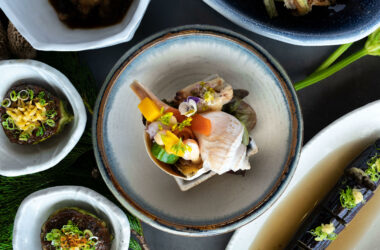In an era where health consciousness is at its peak, understanding how nutrition affects immune health is more important than ever. A strong immune system is our body’s first line of defense against illness and infection. While no single food or supplement can guarantee immunity from diseases, a combination of healthy dietary habits can significantly strengthen your immune response. Let’s explore some key nutritional strategies for enhancing immune health.
1. A balanced diet rich in fruits and vegetables
The power of phytonutrients:
– fruits and vegetables are loaded with essential vitamins, minerals, and antioxidants that support immune function.
– a study in the american journal of clinical nutrition highlighted that flavonoids, a type of antioxidant found in fruits and vegetables, can help improve immune response.
Vitamin c champions:
– citrus fruits, strawberries, bell peppers, and broccoli are excellent sources of vitamin c, known for its immune-boosting properties.
2. Adequate protein intake
Building immune strength:
– protein is crucial for the production of antibodies and immune system cells.
– include a variety of protein sources such as lean meats, poultry, fish, beans, and tofu in your diet.
3. Healthy fats
Anti-inflammatory effects:
– omega-3 fatty acids, found in fish like salmon and trout, as well as in flaxseed and walnuts, are known for their anti-inflammatory properties.
– a study in journal of leukocyte biology suggests that omega-3s can help regulate the immune system and fight inflammation.
4. Probiotics and gut health
The gut-immune connection:
– a healthy gut is essential for a strong immune system, as a significant part of the immune system is located in the gastrointestinal tract.
– probiotics, found in fermented foods like yogurt, kefir, and sauerkraut, can promote a healthy gut flora.
5. Micronutrients and immune function
Zinc:
– zinc is a mineral critical for immune cell development and communication. Sources include nuts, pumpkin seeds, and whole grains.
Vitamin d:
– vitamin d deficiency has been linked to increased susceptibility to infection. Safe sun exposure and foods like fatty fish and fortified milk can boost vitamin d levels.
Selenium:
– selenium, found in brazil nuts, fish, and poultry, plays a key role in immunity.
6. Hydration
Staying hydrated:
– adequate hydration doesn’t directly protect you from germs and viruses, but staying hydrated is important for overall health. Water helps in the production of lymph, which carries white blood cells and other immune system cells.
7. Limit sugar and processed foods
Reducing inflammation:
– high consumption of sugar and processed foods can lead to inflammation and lower immune function. Balancing your diet with whole foods can enhance immune response.
8. Herbs and supplements
Supplementary support:
– some herbs like garlic, ginger, and turmeric have been known for their immune-boosting properties.
– while supplements can help fill nutritional gaps, it’s important to consult with a healthcare provider before starting any new supplement regimen.
Conclusion
Enhancing immune health through nutrition involves consuming a balanced diet rich in fruits, vegetables, lean proteins, healthy fats, and essential micronutrients. Remember, no single food or supplement is a magic bullet for immune health, but a combination of healthy dietary choices can significantly bolster your immune system.







